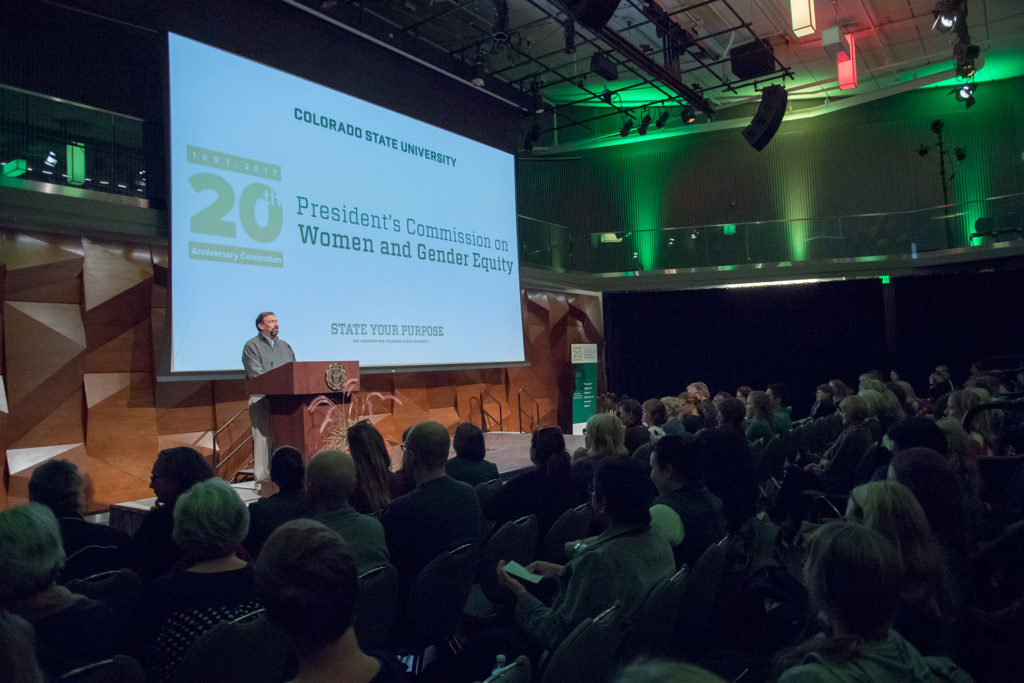
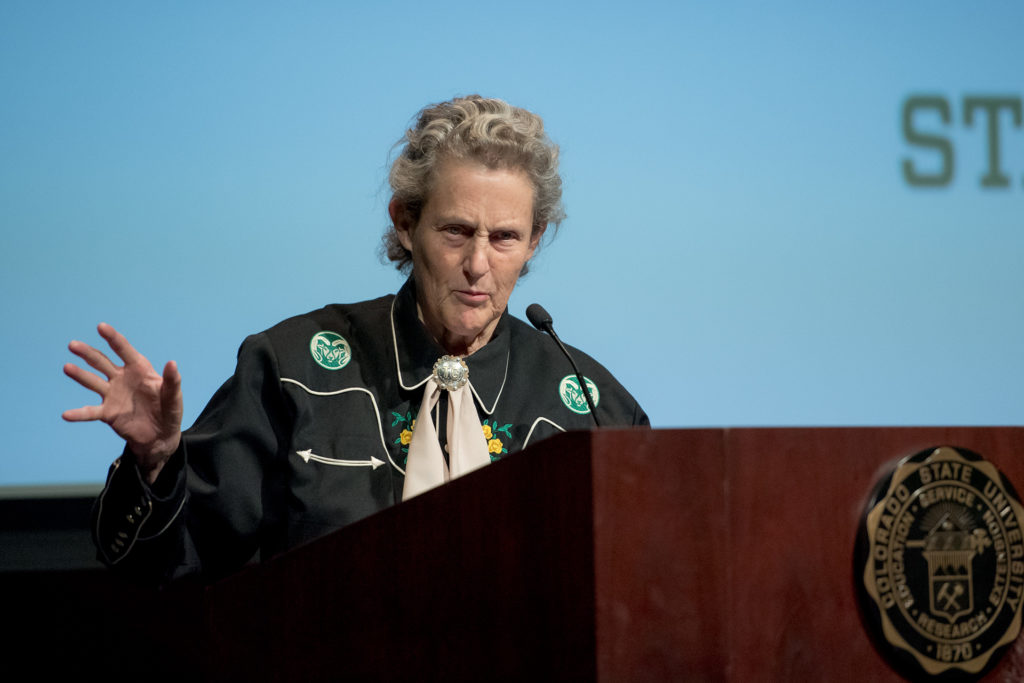
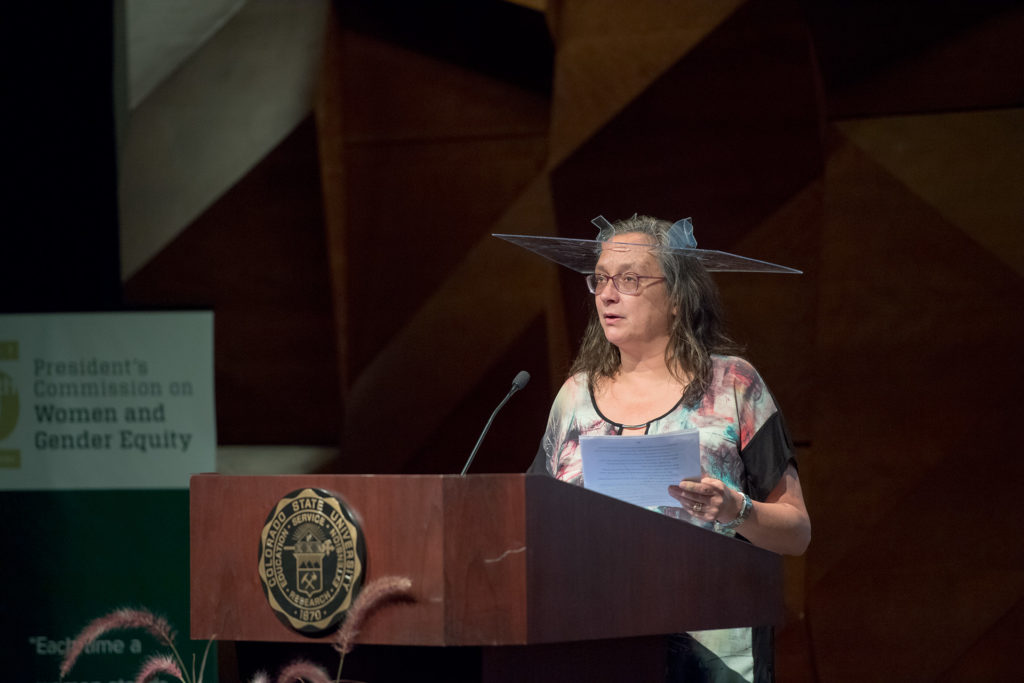
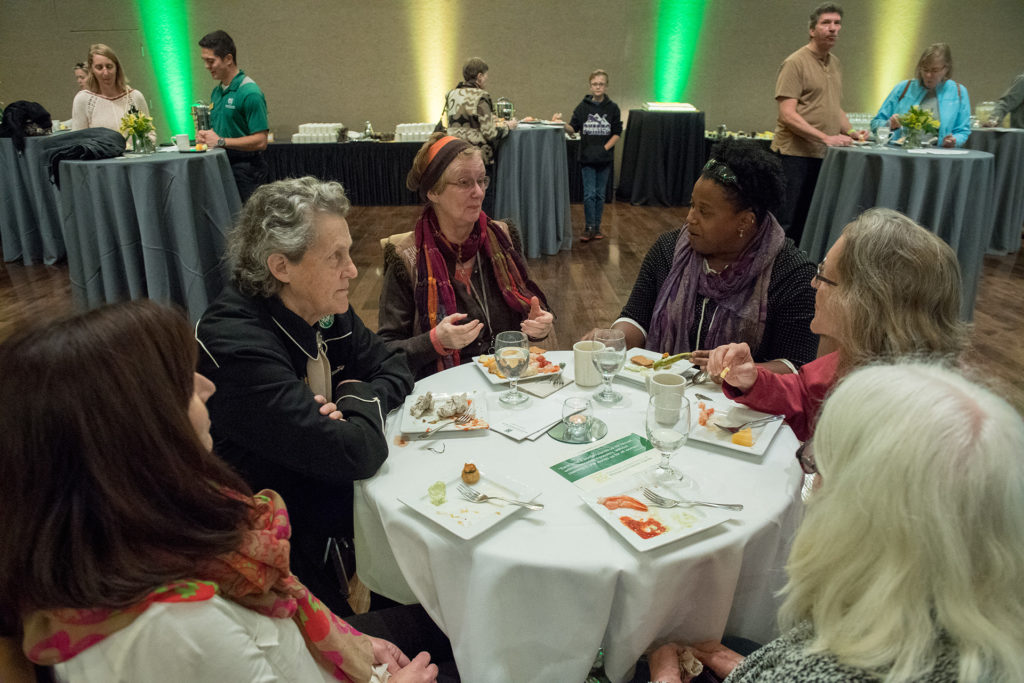
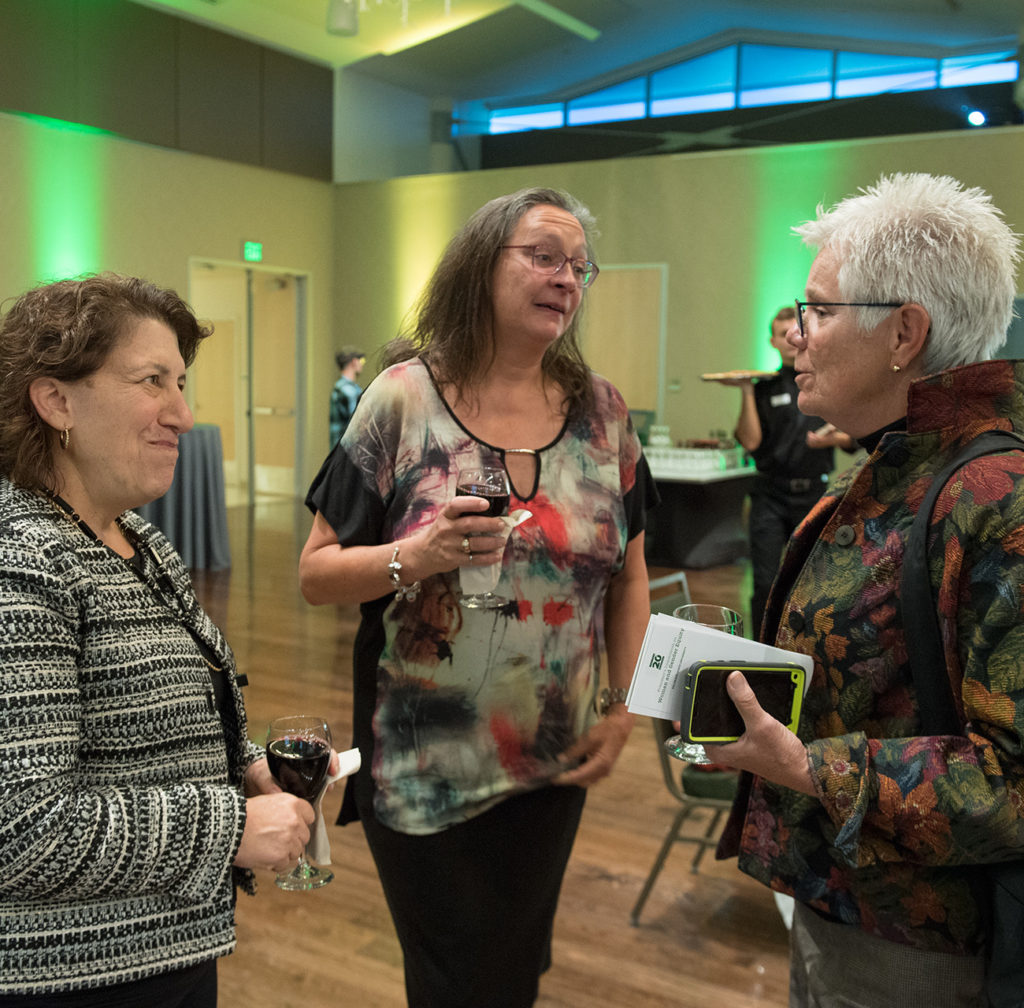
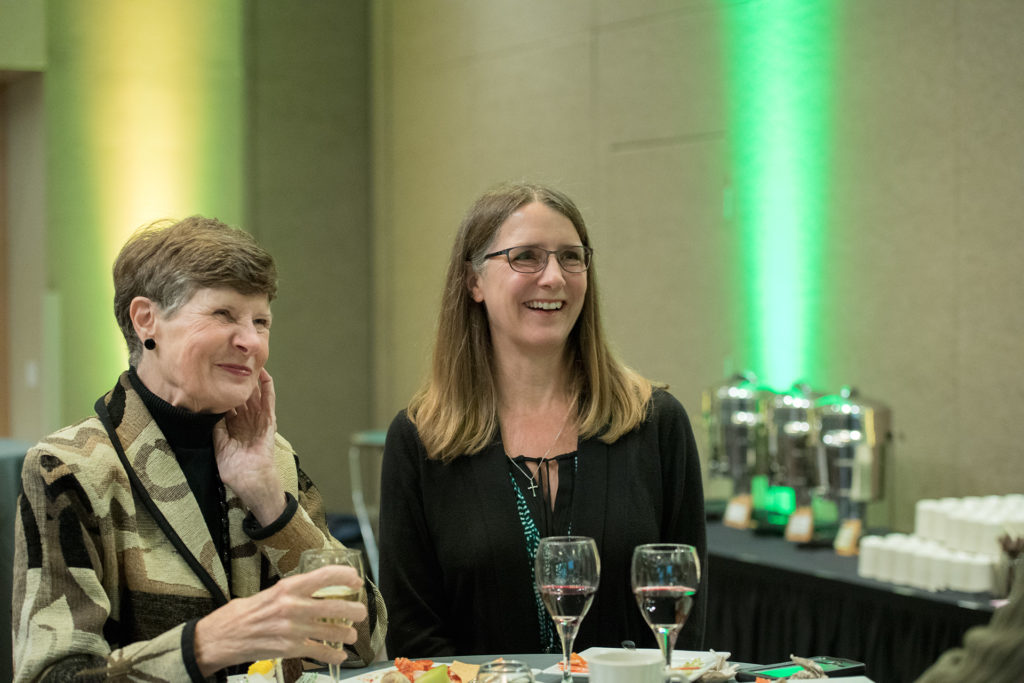
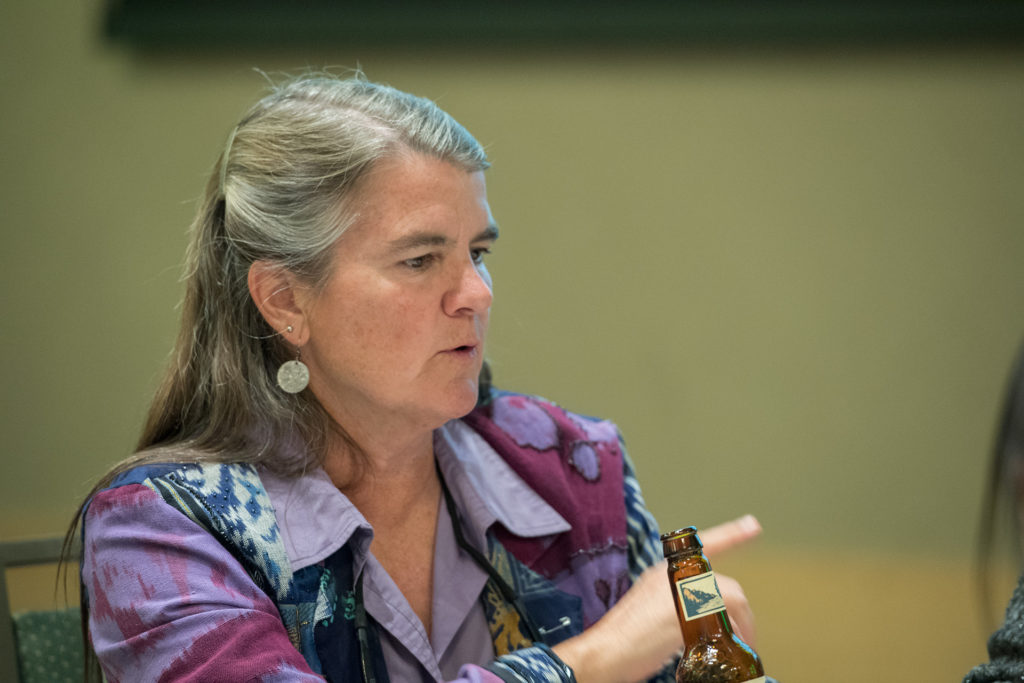
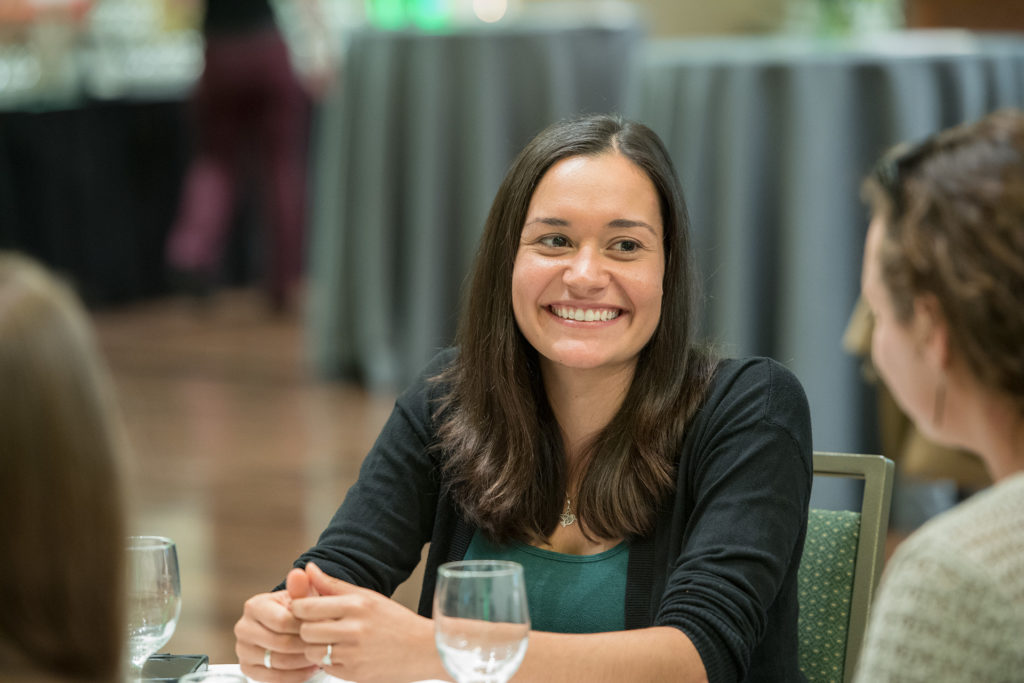
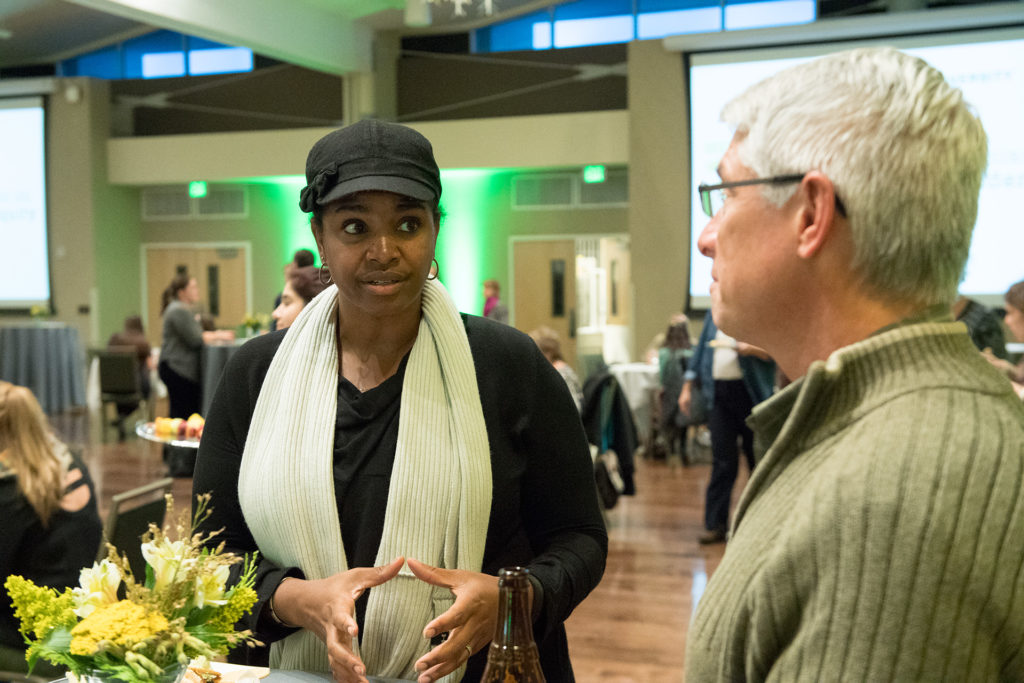
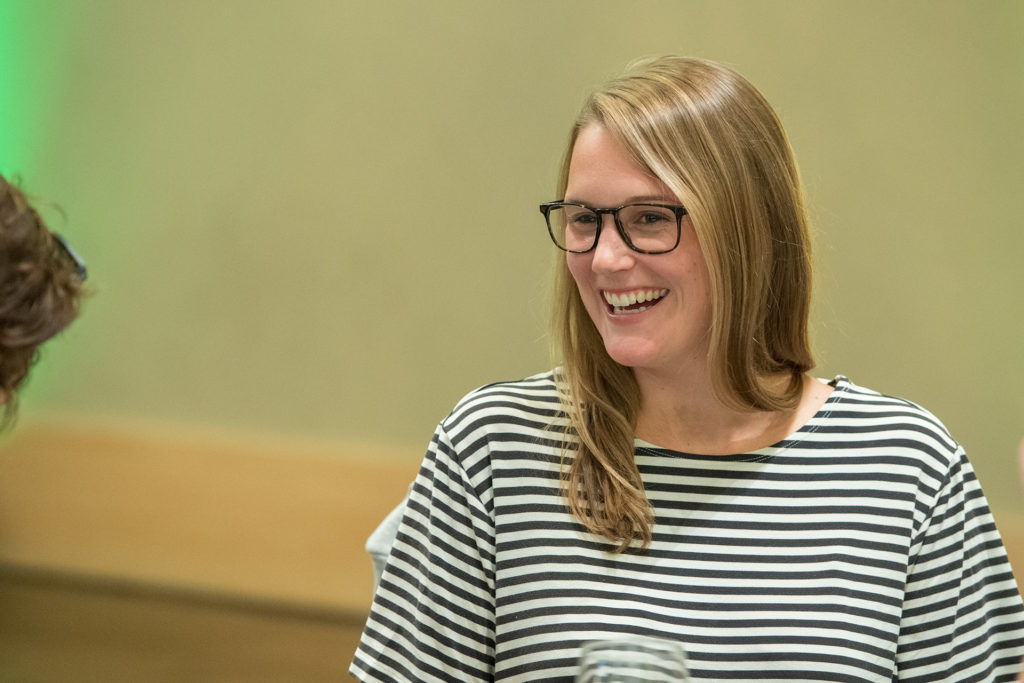
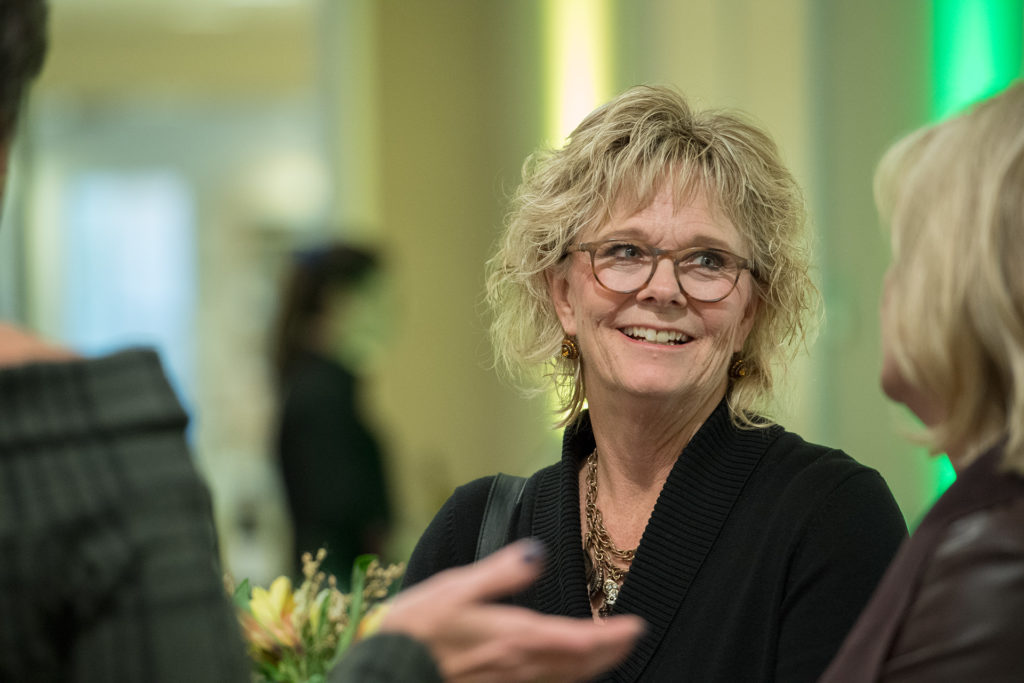
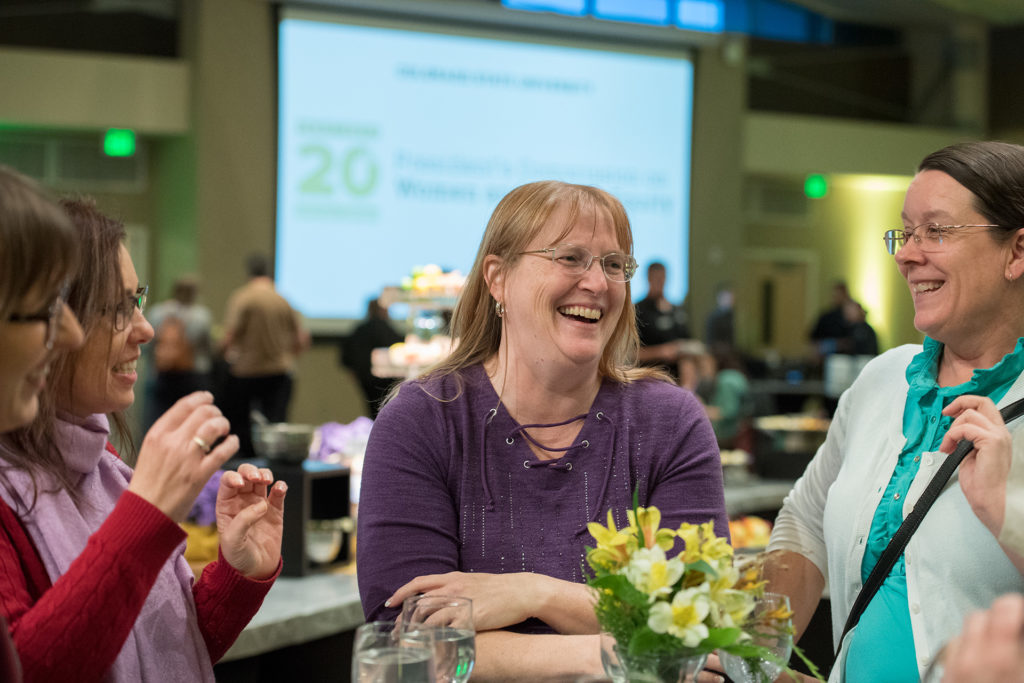
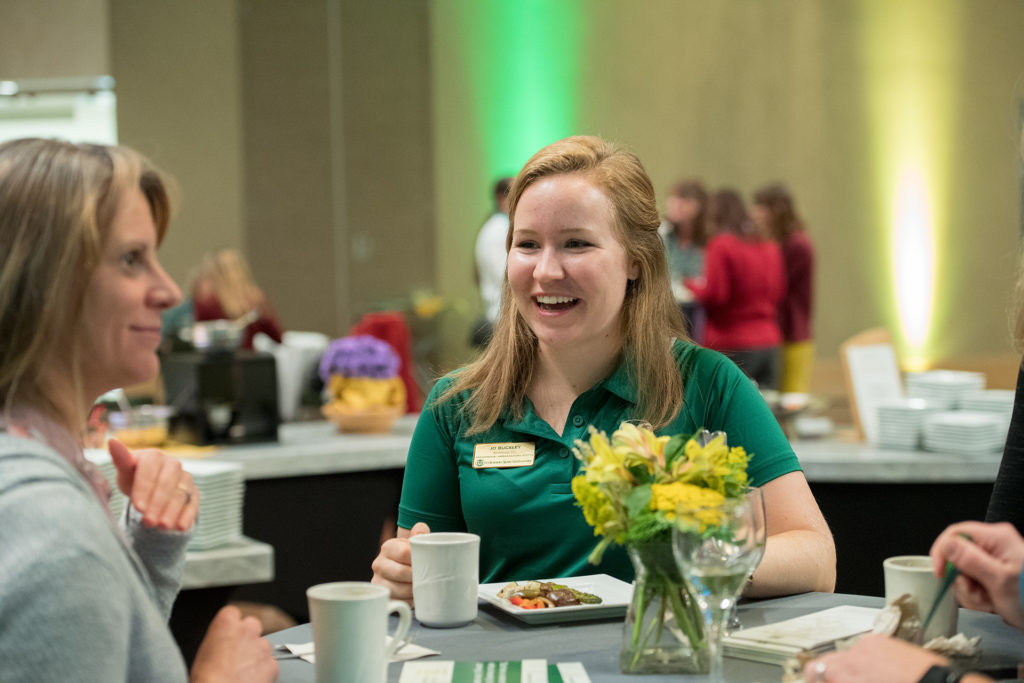
About 250 people attended the 20th anniversary celebration of the President’s Commission on Women and Gender Equity on Oct. 3 in the Lory Student Center Theater. Animal Sciences Professor Temple Grandin was the keynote speaker, and head of the Department of Mechanical Engineering and chair of the Commission Sue James served as emcee, making the point that after 20 years, women are finally beginning to break through the glass ceiling at CSU. Following the presentations, women and men from across campus enjoyed a reception in the LSC Ballroom. Photos by Joe Mendoza, CSU Photography
Shortly after she started working in communications for Colorado State University 20 years ago, Dell Rae Ciaravola noticed a fairly significant adjustment to her paycheck. She asked her female supervisor what that was about.
“She said that the University had just hired a man to do a job very similar to mine at a much higher salary,” recalls Ciaravola, now manager of risk and public safety communications for CSU. “She fought to get me equal pay, because she said women have to look out for other women. I’ve never forgotten that.”
When Sue James, then an assistant professor in mechanical engineering, told her department head that she was pregnant with her first child 20 years ago, it presented a literally unprecedented situation.
“No one in the department had ever given birth,” says James, now the head of the department, drily. “There was no policy for maternity leave, and my department head had never had to deal with anything like this before. But he was great, and luckily I had enough leave accumulated that we could work something out.”
When Temple Grandin first started designing handling facilities for major livestock operations more than 20 years ago, she says she faced more discrimination because she is a woman than because she is a person with autism.
“I’d get hired by the big boss, who liked my work, but then the middle managers and plant engineers would sabotage my projects, because they didn’t like some geek girl moving in on their territory,” says Grandin, now a professor in CSU’s Department of Animal Sciences and a world-renowned advocate for people with autism.
These are just a few glimpses into the state of women on campus that helped inspire the formation of the President’s Commission on Women and Gender Equity in 1997. The University marked the 20th anniversary of the Commission with an event and reception on Oct. 3.
Celebration, and hard work ahead
James, current chair of the Commission; Grandin; and CSU President Tony Frank spoke to about 250 people assembled in the Lory Student Center Theater. While the event was an anniversary celebration, all the speakers were clear that there is still plenty of work to do to fully achieve the original goals of the Commission. In the words of the report by the Task Force on the Status of Women submitted to CSU President Al Yates in 1996, which resulted in the formation of the Commission:
“Our dream is that the University community will embrace the need for women to be treated fairly and with respect, that the numbers of women will increase, and that we will have made progress in the psychological transformation that will help men and women work together effectively.”
Frank recalled a recent conversation with Yates, who established the Commission in 1997: “Looking back, Al told me, ‘I wish we’d done more.’
“If these things could be solved by presidential fiat, they’d be done by now,” Frank continued. “If they could be solved by presidential fiat and hard work, a lot of the people here today would have been a part of solving the problem.”
After outlining the progress made under what James called “The Tony Effect” – a presidential cabinet of vice presidents and provosts with 50 percent of the positions filled by women; the new bachelor’s degree in Women and Gender Studies; parental leave, and combatting sexual violence on campus — Frank acknowledged how far the University still needs to go to achieve true culture change on campus.
“We would be lying to ourselves if we said we are satisfied with where we are today,” he said, adding that the issues of today are “distressingly similar” to those his mother campaigned against in 1976, when she was working for passage of the Equal Rights Amendment.
The report by the Task Force spoke to the same issue:
“What the Task Force has discovered is that concerns of women in 1996 are not dramatically new. Their needs and priorities have the same focus as those found in the literature and identified over the last twenty-five years by groups of women. Although some of those issues have taken a different form, they are the same topics that resulted in the creation of this Task Force.”
“We are finally at a point where culture change is possible,” Frank said, “but true culture change is hard.”
James said she feels that after years of hard work the women of CSU have at least begun to break through the glass ceiling that wasn’t even visible two decades ago. Because “better is good,” and a reason to celebrate.
Frank summed it up with a call to women and men on campus to “push everything we have” into the issues addressed by the Commission: “We don’t want to look back from wherever we are in 20 years and say, ‘I wish we had done more.’”